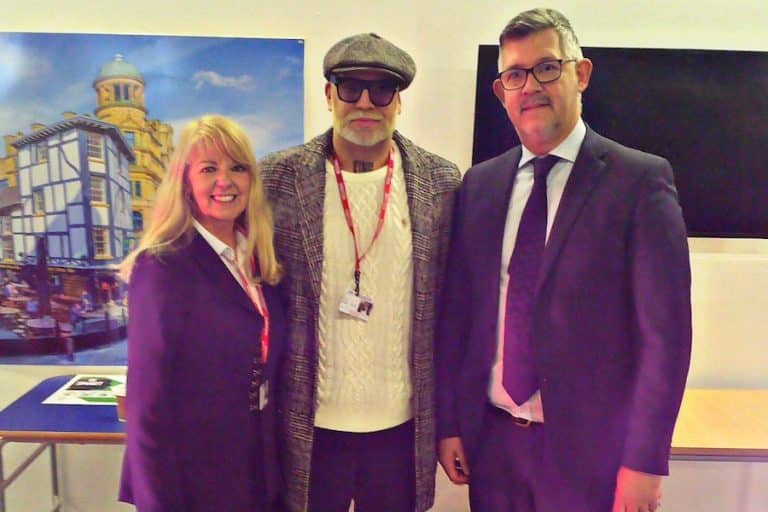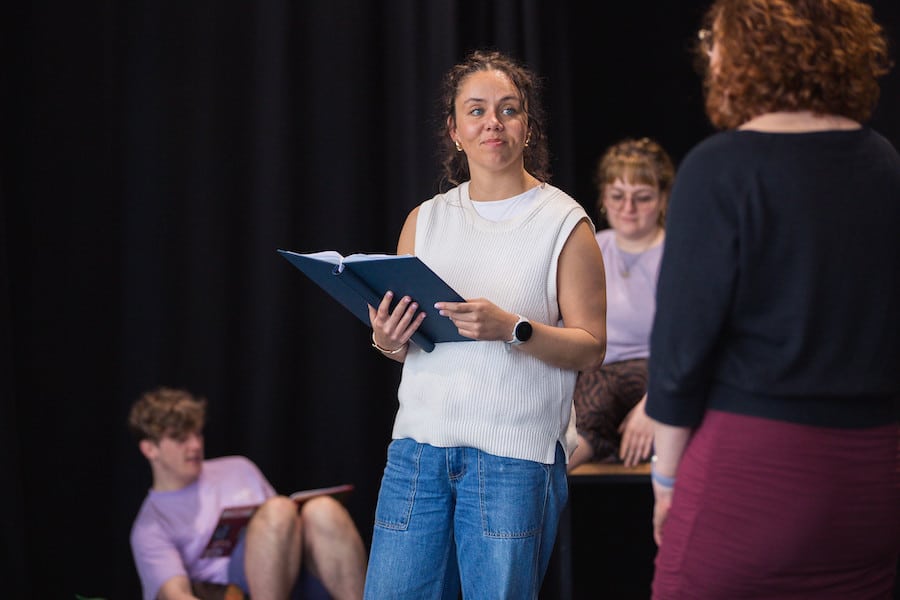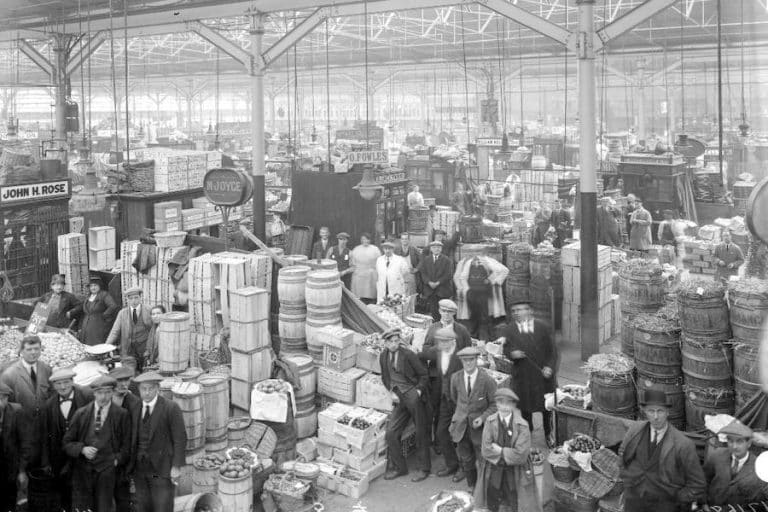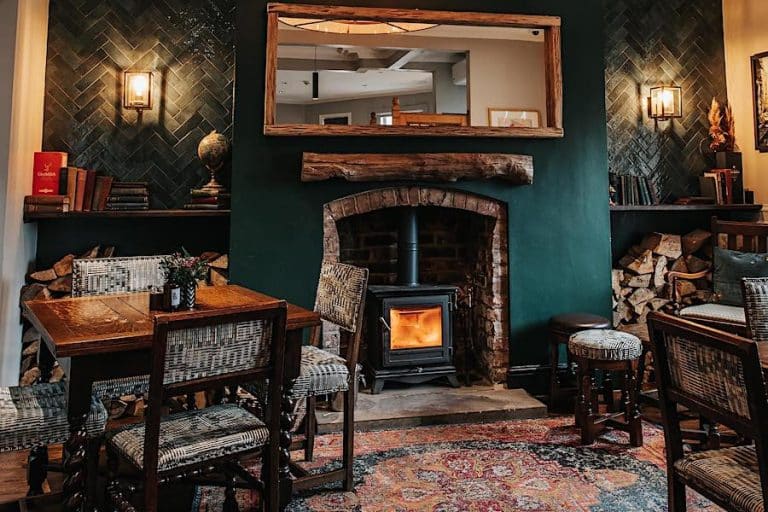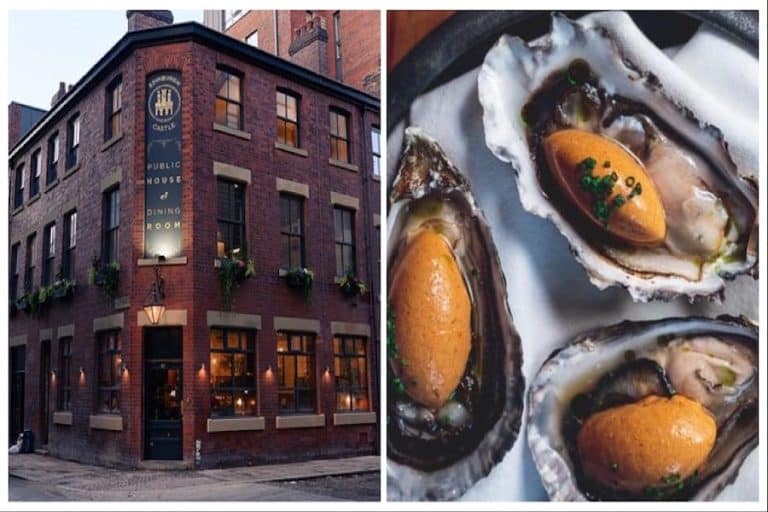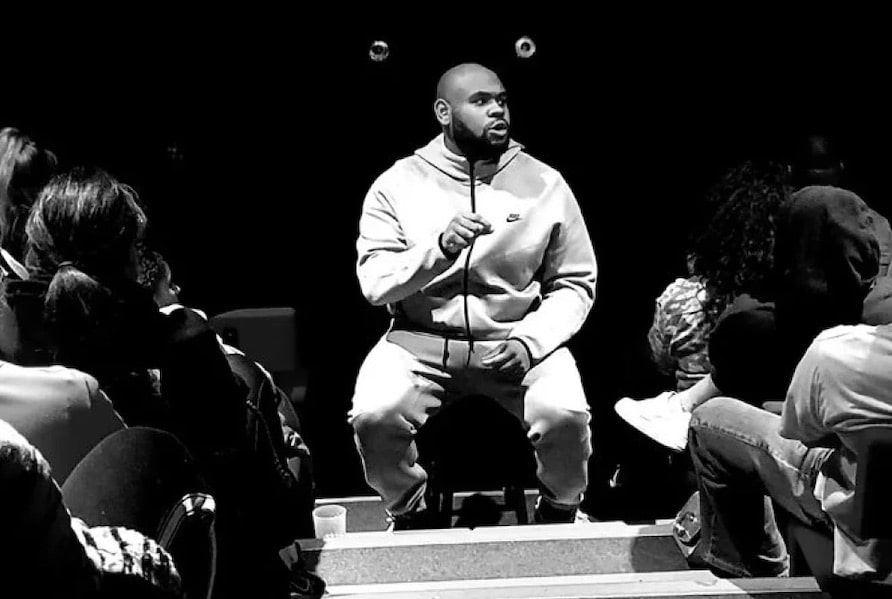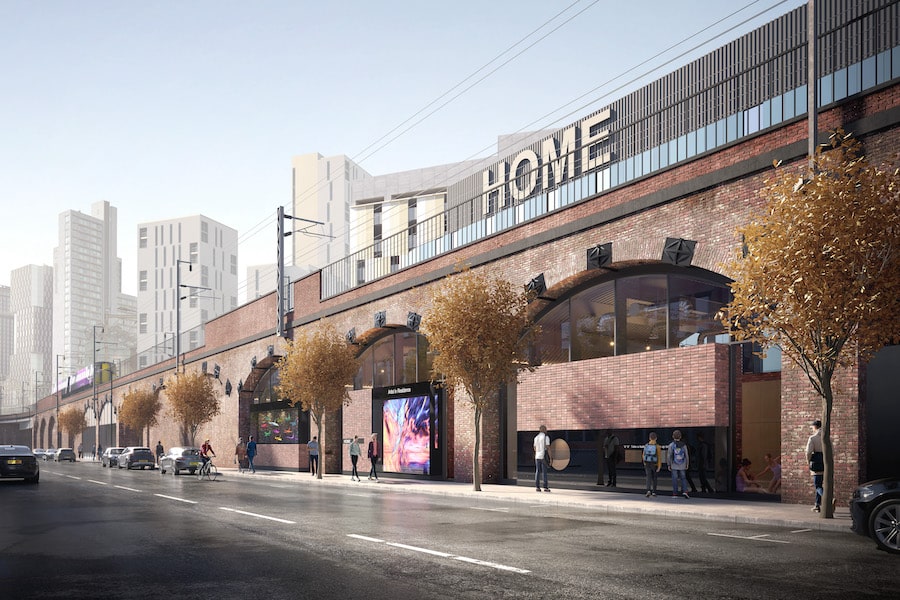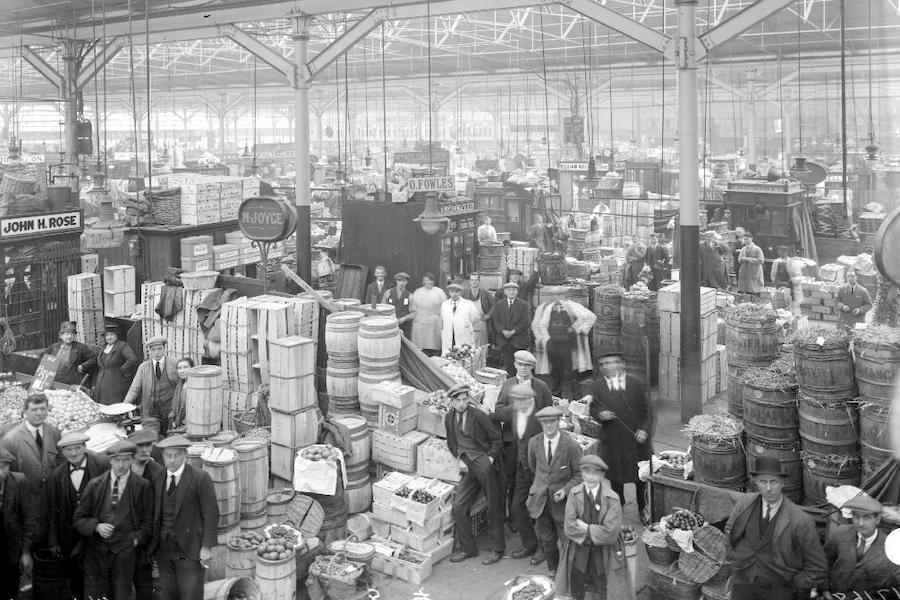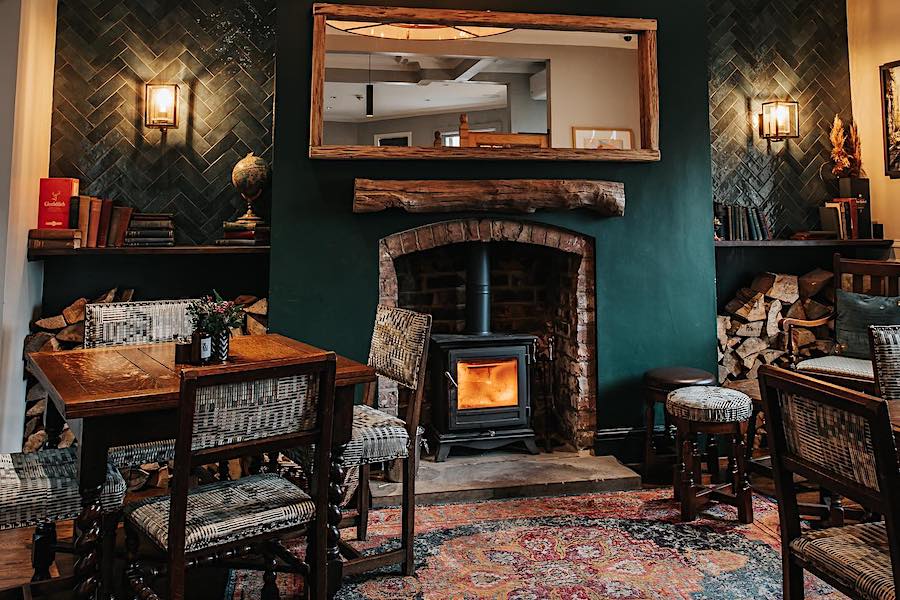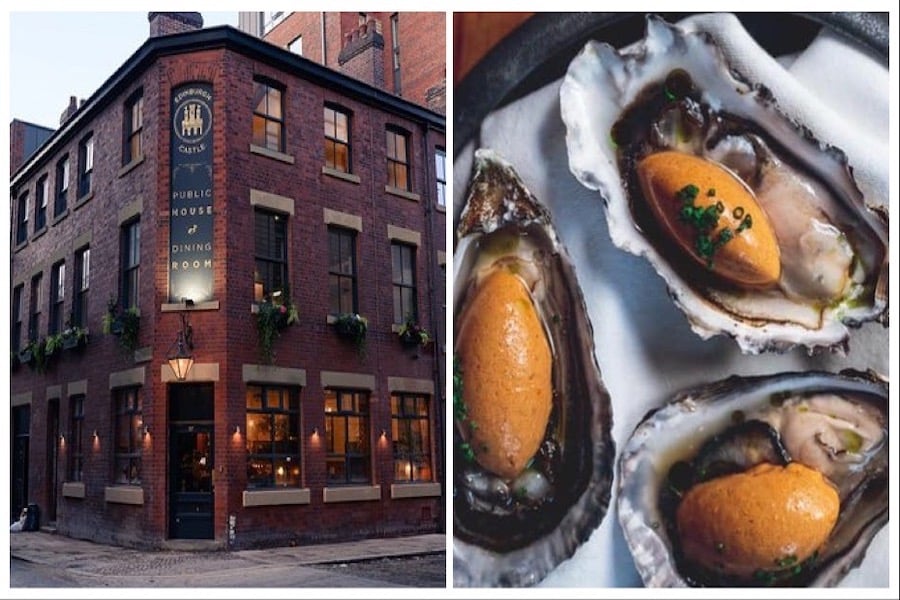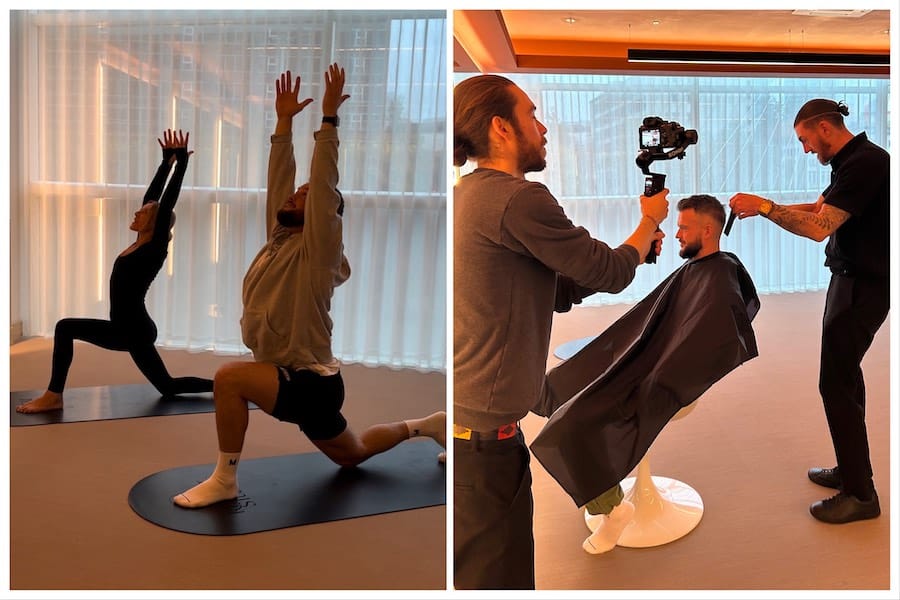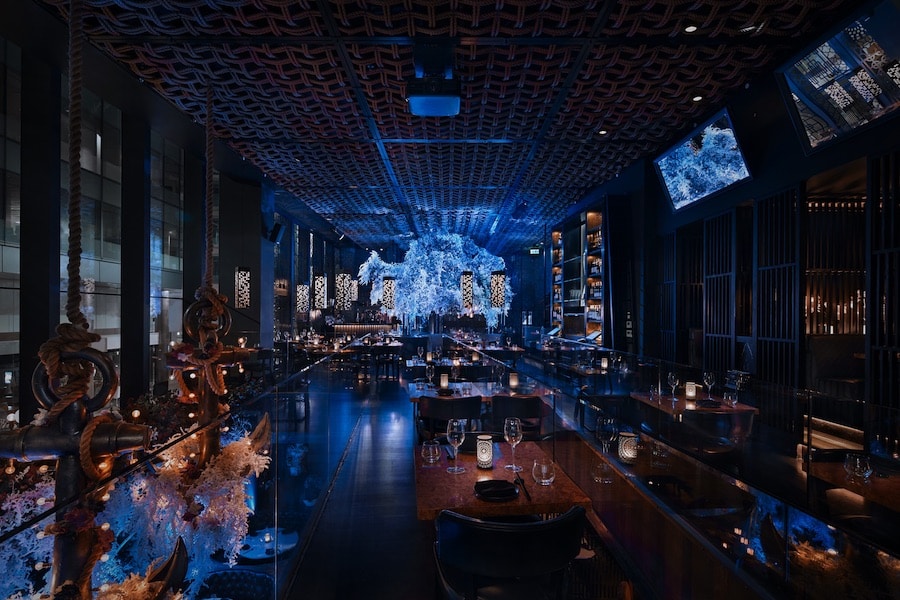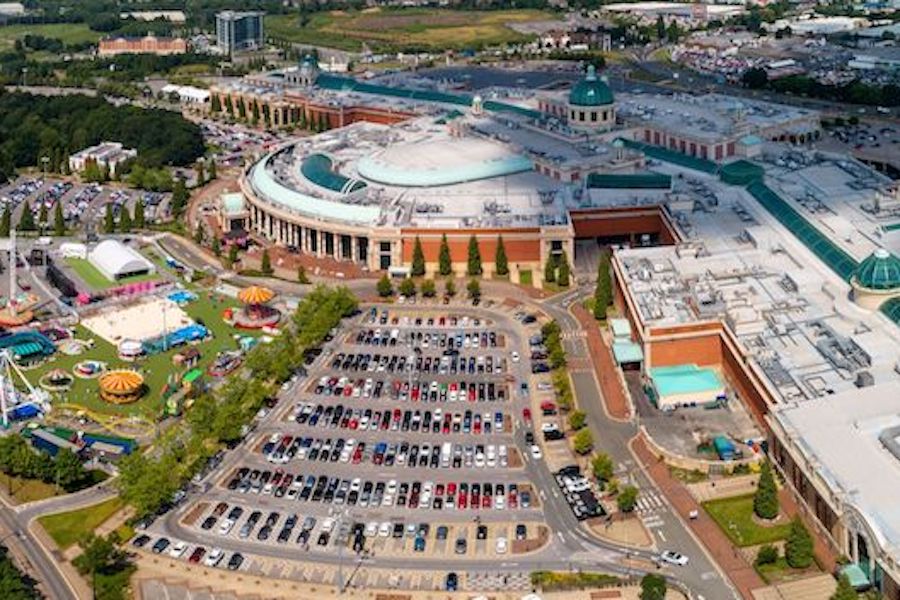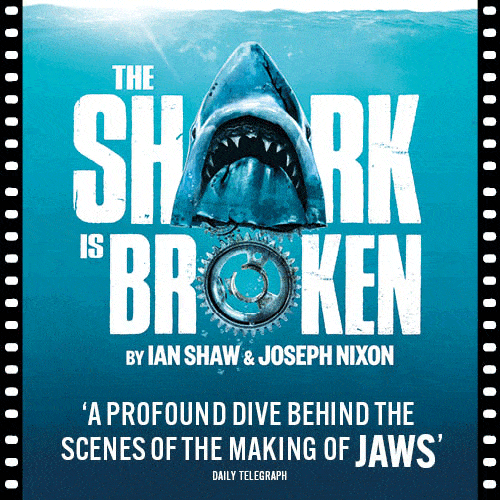How The Lowry helps young playwrights hone their craft
- Written by Glenn Meads
- Last updated 10 months ago
- City of Salford, Theatre
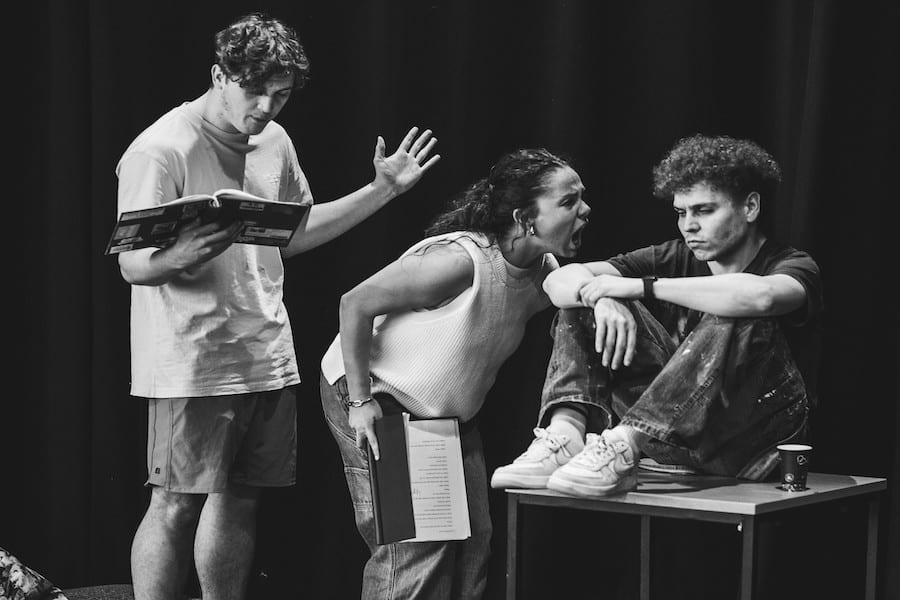
When people think of The Lowry, they probably think of the big musicals or plays staged at The Lyric Theatre, which is bigger than West End stages. Or they may have attended a show in the smaller Quays Theatre there.
But there is also a small, very intimate studio space where a new play, FADE, is being staged which is written by Alice Christina-Corrigan, a Manchester-based actor, writer and creative access director who is part of Developed With, The Lowry’s artist development programme.
We caught up with Alice to find out more about the play and her relationship with The Lowry.
FADE rehearsal pics
How did FADE come about? Where did you get the idea from?
FADE was heavily inspired by my brother. He is my best friend and our relationship is one of the most important to me.
I don’t see a lot of theatre productions about the sister-brother relationship, so over the last few years I knew I wanted to write a play that honoured that type of relationship but I didn’t know how.
While I was a part of the Royal Court writing programme in 2021, every week we were tasked with a different exercise and all I took for stimulus was a brother and a sister.
What I ended up with was the beginnings of a jaunty and interesting play where every scene was very different.
If you look at the play now, you can see how it has taken on that form – with it being two different timelines and two sets of memories happening to make everything make sense.
The production features dynamic new writing, integrated creative access and original music to tell a nuanced story of family life and what happens when the past and present finally meet to reveal the true nature of coming home.
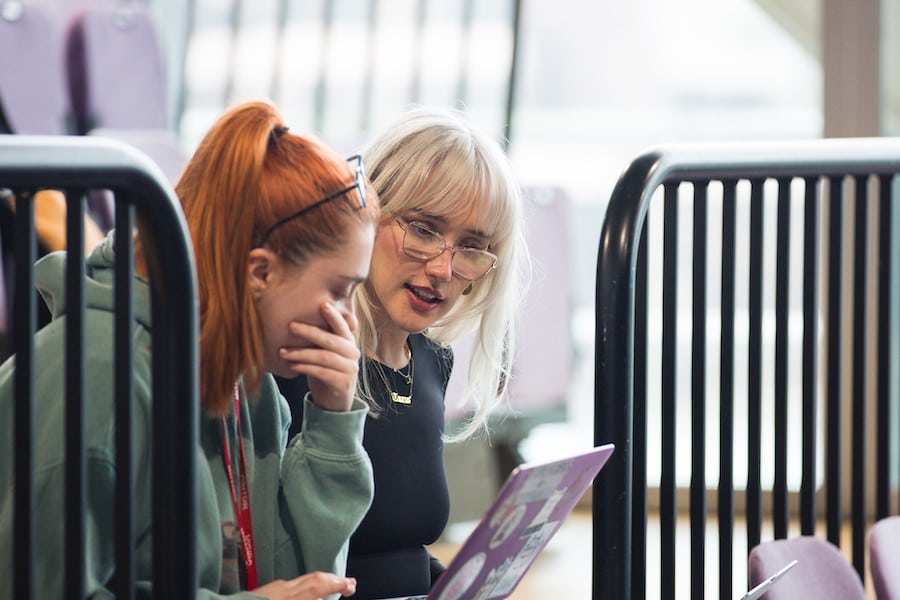
What tips would you give a writer who is just starting out or someone who wants to give it a go?
The tips I would give to a new writer is that you don’t need to have all the answers, you don’t need to know where the play is going.
I find playful exercises such as giving yourself condensed time to explore a scene, a relationship or a character really helpful just to play with it and let the play take you where it wants to take you as you unpack it all subconsciously.
Pick carefully who you choose to give you notes on the play and hold on to what you know is most truthful to you and the vision of your play, advice and tips can be extremely helpful but picking carefully who gets to provide that is essential.
Lastly, remember that it can be really hard and that’s okay so just take your time with it.
Do you write what you know? How much of FADE features things you have seen or experienced?
I write about themes that are important to me and to the next generation of theatregoers. I think it can be dangerous to make autobiographical work, so I ensure that what I put on stage has no reflection of my real life in it.
I try to make pieces of work I would want to see, about themes and relationships that are important to me and to people who don’t often see their stories reflected on stage.
What I didn’t realise when I was writing Past Life and FADE, was that I was making productions that have a universality to them, where people can relate to them in ways that I can’t, which is something I’m proud of.
It’s about telling a story and exploring feelings and experiences many people can relate to which can be difficult to articulate which is what I’m super excited about with FADE.
Many theatres rely on familiar stories to get audiences into their venues. How would you convince an audience member to come and see this new work?
The form of FADE is quite traditional, it explores naturalistic themes in an unnaturalistic world.
It’s open to many different ages and ranges of people and I have done this primarily so that we can debut a show that can interest traditional theatregoers but also looks at how we can engage disabled, young and working-class voices to come and engage with theatre.
By using the format in which I have with FADE, we can hit two different audiences, traditional and non-traditional because I believe to make changes in the industry we need to be proactive in creating work that is reflective of people who might not be coming to the theatre right now.
I recognise that is a big ask, but that is what is so exciting about it!
How important is The Lowry for up-and-coming artists in the north?
The Developed With artist programme is one of, if not the best artist development programme in the UK.
It is an 18-month programme which I have been fortunate enough to be a part of which has seen the trajectory of my career progress as I’ve become a very confident and well-rounded lead artist who’s pioneering big sector-wide changes in the UK.
There is no way that I would be able to do this without the support of The Lowry.
What The Lowry offers is very bespoke development for individuals across areas of visual to comedy to traditional theatre to exhibitions.
This ranges from emerging to mid-scale artists in their journeys.
What The Lowry does particularly well, is utilise their local artist’s voices and for that I am forever grateful for their work and support and cannot wait to debut FADE for its first show at The Lowry.
Tickets for FADE by Alice Christina-Corrigan at The Lowry
FADE is at the Lowry 4th-5th April. Tickets are priced from £10 – £12 and can be booked by clicking here
You can find out more about The Lowry’s artist development programme by clicking here
- This article was last updated 10 months ago.
- It was first published on 3 April 2024 and is subject to be updated from time to time. Please refresh or return to see the latest version.
Did we miss something? Let us know: [email protected]
Want to be the first to receive all the latest news stories, what’s on and events from the heart of Manchester? Sign up here.
Manchester is a successful city, but many people suffer. I Love Manchester helps raise awareness and funds to help improve the lives and prospects of people across Greater Manchester – and we can’t do it without your help. So please support us with what you can so we can continue to spread the love. Thank you in advance!
An email you’ll love. Subscribe to our newsletter to get the latest news stories delivered direct to your inbox.
Got a story worth sharing?
What’s the story? We are all ears when it comes to positive news and inspiring stories. You can send story ideas to [email protected]
While we can’t guarantee to publish everything, we will always consider any enquiry or idea that promotes:
- Independent new openings
- Human interest
- Not-for-profit organisations
- Community Interest Companies (CiCs) and projects
- Charities and charitable initiatives
- Affordability and offers saving people over 20%
For anything else, don’t hesitate to get in touch with us about advertorials (from £350+VAT) and advertising opportunities: [email protected]
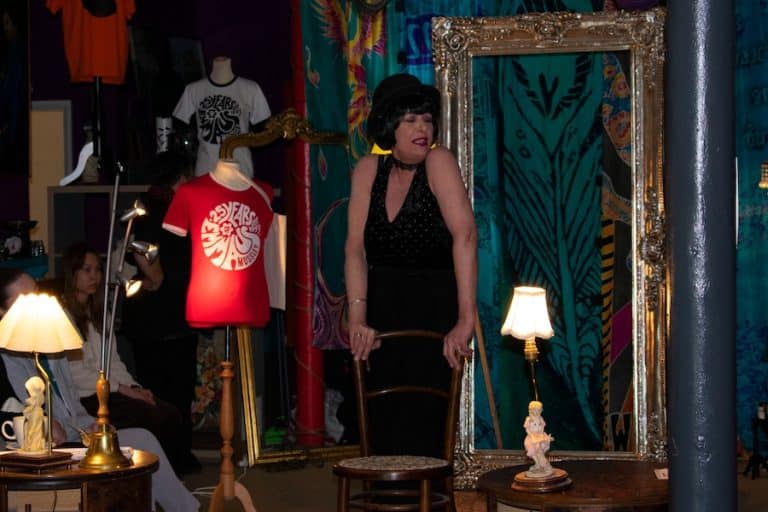
The Social Studio offers fun and friendship for all at Emmaus Mossley

Play ‘This Kind of Black’ returns to tell a vital Moss Side story
